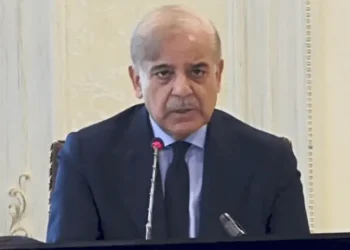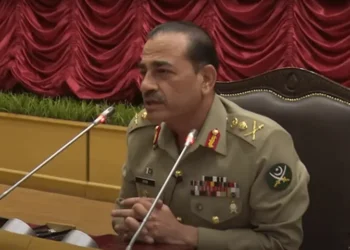ISLAMABAD; Petroleum Minister Ali Pervaiz Malik announced on Wednesday that the federal cabinet has approved the resumption of new domestic gas connections across Pakistan, ending a nationwide ban that had been in place since 2021.
Speaking at a joint press conference with Federal Minister for Parliamentary Affairs Tariq Fazal Chaudhry, Malik said the decision was taken in response to a long-standing public demand, particularly from residents of new housing developments who had been forced to rely on LPG cylinders and other costly fuels during the ban.
He confirmed that both Sui Northern and Sui Southern companies had completed procurement of meters and pipelines, enabling them to begin processing thousands of pending applications once the government notification is issued. Applicants, he added, would also have the option of converting their requests to RLNG-based connections by depositing the prescribed security fee with the Oil and Gas Regulatory Authority (Ogra).
The minister emphasised that although RLNG is more expensive than domestic natural gas, it remains 30–35 percent cheaper than LPG, providing households with a relatively affordable fuel option. “We already have a surplus of RLNG and sufficient electricity, but we are committed to improving governance and sustainability in the sector,” Malik said. He further disclosed that one bidding round for domestic gas exploration had concluded, while another was underway.
Chaudhry highlighted that Prime Minister Shehbaz Sharif personally intervened to lift the 2021 ban, terming the decision a major relief for households. He said the government is also pursuing foreign investment from countries such as Turkiye, China, and the United States to expand onshore and offshore exploration, with the aim of gradually increasing indigenous production and reducing reliance on costly imports.
Turning to the floods, Malik said the prime minister was closely overseeing a comprehensive assessment of the damage in coordination with provincial authorities. The federal government, he assured, would extend maximum support to the victims.
Meanwhile, the federal cabinet also declared both a climate emergency and an agriculture emergency, underscoring the gravity of the challenges facing the country. Chaudhry explained that shifting weather patterns, deforestation, and encroachments on natural waterways have exacerbated flood risks, resulting in recurring disasters across multiple provinces.
He revealed that the climate minister has been directed to submit a comprehensive report to the prime minister within 15 days, after which the cabinet will review strategies for mitigating future risks and safeguarding vulnerable communities. “Since 2022, we have seen devastating floods in Khyber Pakhtunkhwa, Gilgit-Baltistan, and Punjab. Now, as waters move into Sindh from the five-river basin, our priority is to minimise further losses,” he said.
On the agricultural front, Chaudhry noted that recent floods have destroyed large swathes of farmland, creating urgent concerns for food security. The agriculture emergency, he explained, would allow authorities to assess the extent of damage and design compensation packages for farmers.
He stressed that both climate and agricultural crises demand a unified national response, and announced that the prime minister will convene a meeting of all provincial stakeholders, including chief ministers and representatives from Gilgit-Baltistan and Azad Kashmir. “This country belongs to all of us, and together we must face these challenges,” he concluded.




































































